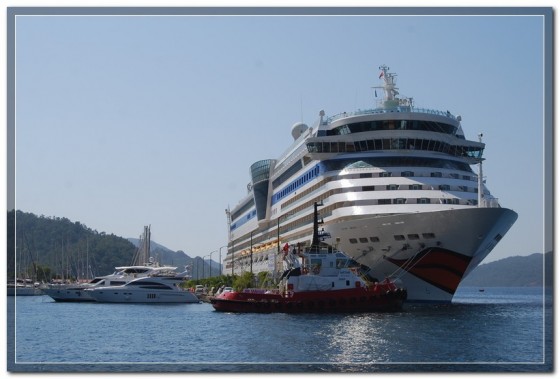Dear yacht brokers, look what I found these days. I have copied the regulations from a brochure which seems to be legit.
Advice to Yacht Brokers
The Recreational Craft regulations first came into force on 16th June 1998. The regulations were updated in 2004 to include personal watercraft and propulsion engines. Whilst these regulations are product specific to boats they are not the only Trading Standards legislation to affect this trade sector. This advice sheet is designed to offer some simple guidance and answer some basic questions to help keep you on the right side of the law.
Recreational Craft Regulations 2004 (RCD)
As a general rule most boats built after 1998 should be CE marked. There are numerous exemptions to this rule, all of which require some evidence that the exemption applies for the craft to be legally used or sold within the European Union (EU).
Compliant craft will have:
- a CE mark on
- the builder’s plate,
- a Craft Identification Number (CIN) and
- a declaration of conformity in
- the owner’s manual.
A craft should have all 5 items. The existence of which can be easily checked.
Craft in use as recreational craft in European waters before 16/6/98 are not caught by the RCD. Used craft of non-EU origin need some credible evidence of use in EU waters prior to June 1998. If imported after 16/6/98 they must have been CE marked. After 1/1/2005 the Post Construction Assessment (PCA) route became available and the builder’s plate should be marked Post Construction Assessment. Home built craft or home completed if sold within 5 years of its first use must be CE marked and comply fully with the RCD. The date of completion and date of first use are not necessarily the same.
Any partly completed craft should have an “Annex III a declaration” in the accompanying paperwork. If the part complete boat has been through several builders and is still not completed, there may be more than one Annex III a declaration.
Home completed craft, consisting of professionally built hulls finished by amateurs, should not be placed on the market for 5 years, as above, but should also have an Annex III a declaration for the part-complete hull. There is no exemption for importing and using a used boat from outside the EU for private/personal use.
Ex-racing boats and commercial craft, built after June 1998, if sold into the recreational market at the end of their racing and commercial lives should comply with the RCD before they can legally be sold and used within the EU in their new role. Who takes on that responsibility, the buyer or seller should be made very clear before any sale.
A CE marked craft that has been substantially modified such that it alters any of its essential characteristics will be regarded as a new boat and should be re-certificated. A non-compliant craft never gains legality through the passing of time. Action may be taken by any EU country to remove it from the market, on discovery of the non-compliance.
Acting as an Agent for a non EU manufacturer
Under the RCD rules the responsibility for ensuring craft meet the requirements is placed on the person responsible for placing the craft on the market. Where a manufacturer is not based with the EU, they can appoint an Authorized Representative. An Authorized Representative means any person established in the Community who has received a written mandate to act on the manufacturers behalf with regard to the manufacturer’s obligation under the Directive. These obligations can include performing the conformity assessment, issuing and signing the declaration of conformity or acting as the contact point for obtaining legal paperwork. However the extent and limitation of the authorized representative’s responsibilities have to be explicitly stated in a written agreement between the manufacturer and the authorized representative. Without this written agreement, the responsibility for ensuring the craft meets the RCD requirements falls on the person who is responsible for placing the craft on the EU market, i.e., the importer. One of the requirements is that the compliance paperwork, including the full Technical File, is kept available for inspection for 10 years after the craft was placed on the market. If you merely act as a distribution agent for a manufacturer from outside the EU, without informing your client of the full implications of their being the importer, you may well be in breach of your duty of care and may commit criminal offenses, see below. An agent will be acting as a distributor under the General Product Safety Regulations 2005 (GPSD) and will have legal liabilities concerning monitoring and reporting product defects. See below.
General Product Safety Regulations 2005
These regulations (GPSD 2005) came into force on 1st October 2005. The RCD only covers any craft when first placed on the market. It does not apply to any subsequent placing on the market. Put simply the RCD applies when the craft are ‘new’. It does not apply to used craft but the requirements of the GPSD do.
The GPSD 2005 applies to all consumer goods whose safety is not already caught by other regulations. They require all consumer goods to be safe.
The terminology used to describe who must comply is different.
Manufacturer, own brander, repairers or re-conditioner and any other professional in the supply chain whose activities affect the safety of consumer goods is called a producer. Any professional in the supply chain whose activities do not affect the safety of consumer goods is called a distributor. This can be wholesalers, retailers, agents and auctioneers. You do not have to own the goods. Producers and distributors now have a duty to monitor the safety of the product placed on the market, inform each other of problems which affect the safety of the products they supply, to inform each other of problems which affect the safety of products they supply, to pass on information about the products and to keep records in order to trace the product.
Where a serious risk to health and safety of the user is discovered, it must be reported to the local Trading Standards Service. This is principally the duty of the producer, but if he does not or cannot, then the distributor should make the notification.
Product recalls now have legal status. Other actions such as the publication of national notices to warn of dangers and notices to require goods to be marked can also be invoked by the Enforcement Authority. More details can be found at ber.gov.uk
The penalties for not complying can be extremely serious.
Consumer Protection from Unfair Trading Regulations 2008
The RCD applies to craft new to the EU market. As a Broker, you will not always have an obvious responsibility under the RCD. These new regulations replace the Trade Descriptions Act 1968. They still apply to all description applied to goods, in the course of a trade or business, where the description affects the consumers decision to make a purchase.
A description can be direct or implied, written or verbal and may also come about by omission. It applies equally to prospective sale and purchases. These Regulations bring in a general duty not to trade unfairly, prohibit misleading actions and omissions and unfair trading practices and outlaw 31 prohibited specific practices. Areas covered include false descriptions and
membership claims, misleading information about prices, scams including prize draws and bait advertising. An offense occurs where the practice contravenes the requirements of professional diligence and affects the economic behavior in a decision made by a consumer.
Any disclaimer about an applied description cannot be hidden away in small print. They must be “as bold, compelling and precise and as the original description”.
Other regulations
A variety of goods and fittings found on recreational craft are required to be CE marked when new or first used in the EU. These include gas appliances, electronic and electrical goods, radio transmitters, personal protective equipment and machines. If they are classed as used goods then the GPSD 2005 will probably apply.
Civil, as well as criminal liability can follow. An action may be taken by an injured party against any professional in the supply chain, jointly or severally. There are regulations controlling unfair contact terms and attempts to restrict a consumers’ Sale of Goods rights. Attempts to avoid liability through the use of small print may result in both civil and criminal action. The civil law places a “duty of care” on Brokers towards both the seller and buyer.
Due Diligence
Most Trading Standards legislation provides potential defenses to those accused of committing offenses, often known as the due diligence defense. It will be a defense in any criminal proceedings if you can show you took reasonable steps and exercised all due diligence to avoid an offense being committed. What the law considers to be reasonable steps and all due diligence is summarized below:
- Inaction will never be a defense, some positive steps are required.
- Taking reasonable steps will require the setting up of a system of control to prevent an offense and due diligence involves the proper management of that system.
- A successful defense requires all reasonable steps and due diligence to have been taken. If there are reasonable precautions that could have been taken and were not, it is likely a defense would fail. It would be for a court to decide what reasonable steps are.
- You can rely on a description made by someone else if it is reasonable to do so. You must have taken reasonable steps to verify this information. If the information has not yet been verified you may wish to use a modifying or qualifying statement to warn that the information has been supplied by another person and the accuracy has yet to be confirmed and cannot be guaranteed. However, such statements may only have limited legal effect; they cannot be relied upon for your own misstatements and must be as prominent as the description, not hidden in small print or general notices.
Sanctions
For an offense under the RCD, the person responsible for first placing the craft on the market or taking it into service the maximum penalty for breaching the RCD is 3 months imprisonment or a £5000 fine. This applies equally to private individuals and those in business. Although a prosecution must be brought with one year from the date of the offense there are other processes which can be invoked on the discovery of a non-compliant or falsely CE marked craft. For some offenses under the GPSD the penalties can be up to a £20,000 fine and up to 12 months imprisonment. These and other regulations give Trading Standards Officers in the UK, and any other authorized person in the EU wide powers. These include the power to suspend, seize and apply for their forfeiture in order to take them off the market. Trading Standards Officers also have powers to enter premises, examine paperwork and goods to check that recreational craft do comply with the regulations. These powers can be exercised whether or not an individual is prosecuted.
All this pics in Marmaris, Turkey, a non EU member, are a reminder for the local brokers to mark CE the boats for sale before any attempt to sale them to the brave and meticulous UK yachtsman!
If you like what you read, please subscribe to this blog by completing the form. If you want to help more, start by following us on Twitter, and like our page on Facebook. You don’t know what good things may happen. To lighten your day, check our pins on Pinterest, we can be friends there too. Oh, and if you need a really good looking blog attached to your site, or just for fun, to express your feelings more competitively, read this Own Your Website offer! Thank you very much.
Copyright © 2012 The Yacht Owner – Regulation for Recreational Boats in UK



